Verifiable Parental Consent: A Key to a Safer Online World for Children
Empowering children and those responsible for their care to exercise their rights to protection under Online Safety Acts and the EU's Digital Services Act
On April 10, I had the pleasure of speaking at the Global Age Assurance Summit in Manchester. My focus was on a critical element of online child safety, which is Verifiable Parental Consent (VPC) and the development of a technical standard to address the current gaps in this area. Listen to my speech here
Protecting Children in the Digital Age
Protecting children online is paramount. Regulations are constantly evolving to reflect the growing recognition of a "duty of care" towards young users. Children are vulnerable, and strong safety standards are essential to minimize online risks.
The Power of Consent
Informed and verifiable parental consent plays a vital role in online safety. It serves four key purposes:
Empowering Parents: Consent allows parents to make informed choices regarding their child's online activities.
Building Shared Responsibility: Clear expectations and trust in safety measures establish a shared responsibility between parents and organizations.
Protecting Organizations: By taking reasonable precautions through verifiable consent, organizations can reduce legal liability.
Parental Involvement: Consent fosters active parental participation in their child's online journey.
Real-World Examples: Offline Consent Sets the Standard
Think about everyday examples like consent forms for swimming lessons. These forms detail child information, emergency contacts, and acknowledge inherent risks. Similarly, consent forms are routine for sports participation, library access, medical appointments, and even bank accounts. These real-world examples demonstrate our ingrained expectations for safety measures.
A Need for Standardised VPC
In the online world, however, there's a lack of standardisation for verifying parental consent. Existing methods often lack sufficient assurance levels. The VPC Trust Alliance aims to address this gap by developing a technical standard that ensures verifiable and informed parental consent. The EU's Digital Services Act (DSA) and similar Online Safety Acts coming into force around the world require companies to exercise a duty of care towards children and young people. Specifically, Article 21 of the DSA affords parents, on behalf of young children, the right to redress. Therefore, it is vitally important for parents to have a way to verify that they are the parent of a child.
The VPC Standard: Balancing Protection and Rights
The VPC standard considers age verification, age estimation, and minimizing data collection. It strives for a balance between protecting children, maximizing positive online experiences, and respecting fundamental rights like access, participation, expression, and data privacy.
Technology: Risks and Opportunities
While the online world presents risks and harms, technology also offers tremendous learning and recreational potential for children. Our focus is on mitigating risks while maximizing the positive impacts of technology.
Digital Parenting Rights
Digital parenting rights encompass the right to protect children, seek redress, and manage their data. Protecting children's privacy in the online world is crucial, especially since they may not fully understand algorithmic processes or privacy concepts.
Platforms and Education: A Shared Responsibility
Platforms have legal obligations regarding age verification, data protection, and privacy as outlined in various regulations like GDPR, COPPA, KOSA, and Age Appropriate Design Codes. Education plays a vital role for all stakeholders – parents, children, and software engineers. We need to understand the evolving digital landscape and ensure that business models respect user rights.
Verifiable Parental Consent: Addressing Challenges
The concept of verifiable parental consent, age assurance, and ongoing verification are key elements of the VPC standard. Various methods exist, such as email verification, parent vouching, or verified parental responsibility checks, which can be combined for different assurance levels.
The standard addresses challenges faced by children in care, foster care, and refugee situations. It recognizes what is termed, for example, in US law as "reasonable and prudent parent" standards and in UK law "delegated authority" for foster carers. Foster carers in Ireland can and do apply for enhanced rights- which include their ability to apply for passports and sign consents on behalf of the child in their care. The VPC standard will take into account these provisions and ensure there is clarity provided to key stakeholders.
Collaboration with stakeholders like the Office of the United Nations High Commissioner for Refugees (UNHCR) ensures inclusivity in the standard's development.
Content Access and Safeguards
Concerns regarding access to content related to mental health or sexual health are valid. The VPC standard doesn't prevent access to such content if appropriate safeguards are in place. Initiatives like the Inspired Pledge & Ramp contribute to ensuring high-quality content for young people.
Digital Parenting and the VPC Standard
Digital parenting empowers parents to protect their children's rights online. Verifiable parental consent is a critical tool for achieving this goal.
The VPC Standard Development
The development of the VPC standard considers both functional and non-functional requirements. These include parent authentication, levels of assurance, and zero-knowledge proofs (verifying parental responsibility without revealing personal data). Privacy-enhancing technologies are crucial for the standard to meet its objectives.
Benefits of the VPC Standard
The VPC standard offers several benefits:
Enables platforms to comply with regulations.
Enhances child safety, well-being, and online security.
Reduces online child sexual abuse and exposure to harmful content.
Empowers digital parenting.
Protects children's privacy.
A Call to Action
https://youtu.be/oVSnAL0EUBA?si=NObBX4H09ZlCqDBi
Let's continue the conversation. Share your thoughts and questions about verifiable parental consent. I invite you to join the development of the VPC standard. Together, we can create a safer online environment for children.

